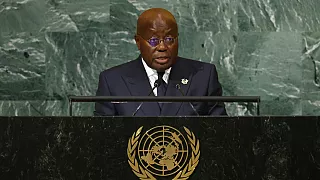The International Monetary Fund (IMF) on Wednesday approved a $3 billion loan for Ghana, a West African country in the midst of a severe economic crisis, with the first immediate disbursement of about $600 million.
The programme, endorsed by the IMF board, is spread over 36 months under the Extended Fund Facility.

It aims at “restoring macroeconomic stability and debt sustainability, as well as implementing wide-ranging reforms to build resilience and lay the foundation for stronger and more inclusive growth,” commented Fund Managing Director Kristalina Georgieva, quoted in an IMF statement.
She said that “fiscal consolidation is a central element of the programme” as is “preserving financial sector stability”.
Furthermore, “monetary and exchange rate policies under the programme will focus on inflation control and rebuilding foreign exchange reserves”.
Finally, “an ambitious programme of structural reforms is being put in place to revitalise private sector-led growth by improving the business environment, governance, and productivity,” added Kristalina Georgieva.
The IMF announced on Friday that Ghana had provided sufficient guarantees to benefit from an aid plan, welcoming the recent promise of its creditor countries, led by France and China, to open negotiations for a restructuring of its debt.
Weakened by the repercussions of the war in Ukraine, Ghana decided to call on the IMF and in December reached a pre-agreement with the institution to obtain 3 billion dollars in loans spread over three years and conditional on the implementation of economic reforms.
A major producer of cocoa and gold, Ghana also has gas and oil reserves, but its debt burden has exploded, as in other sub-Saharan African countries, under the impact of the Covid-19 pandemic and the Ukrainian conflict.
This crisis, the worst in decades, has forced President Nana Akufo-Addo to reverse his past positions by turning to the IMF to stave off the spectre of default raised by some economists.
Source:AFRICAN NEWS




















Add Comment